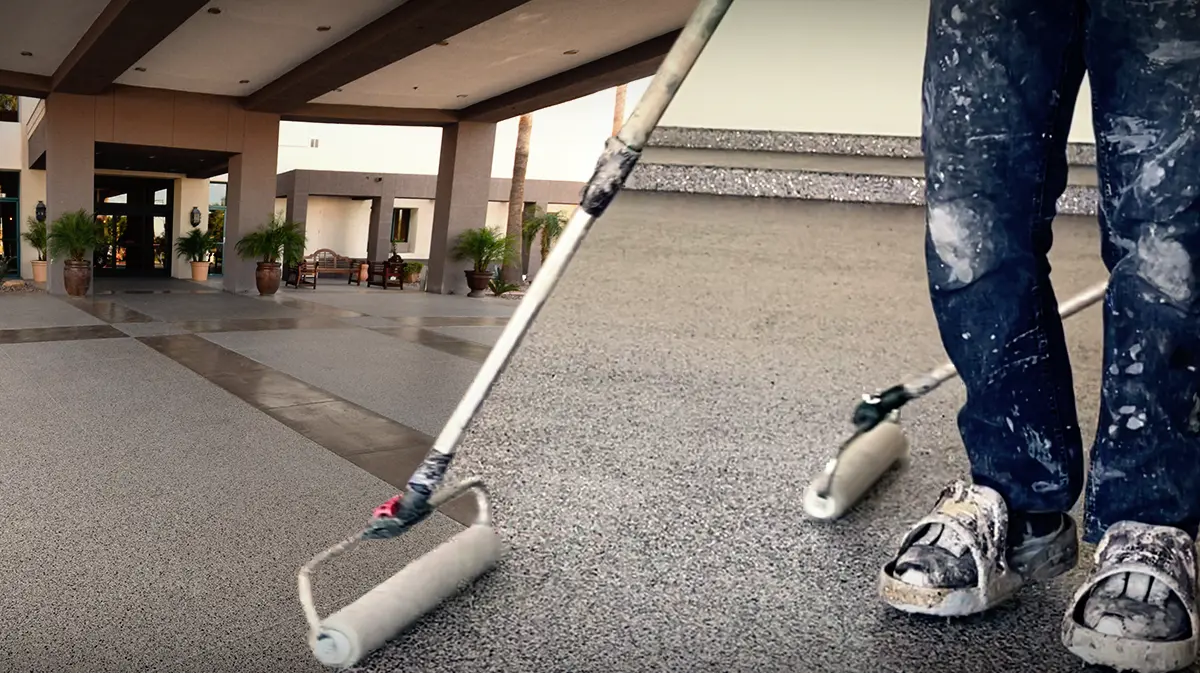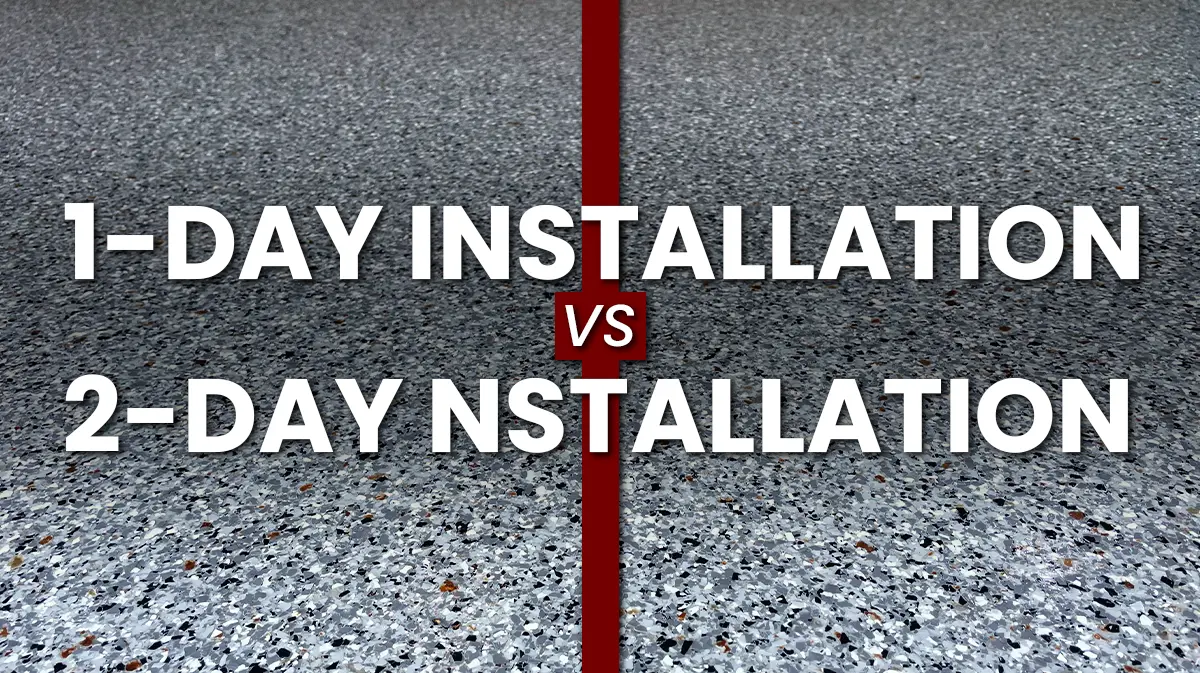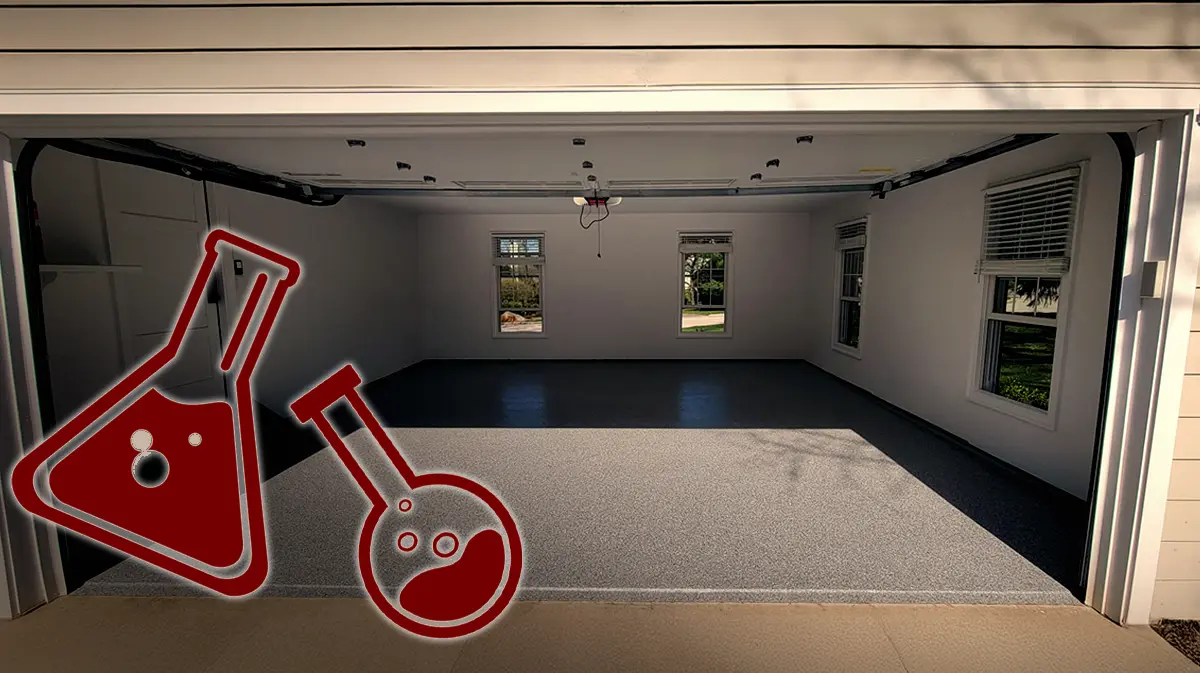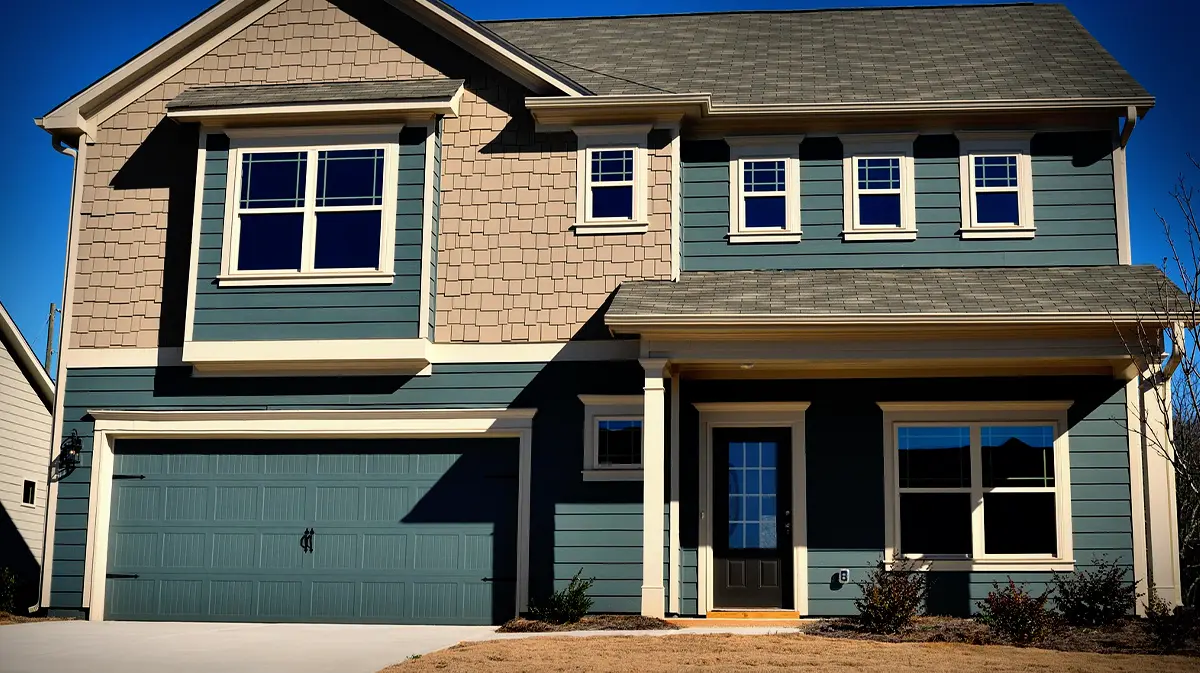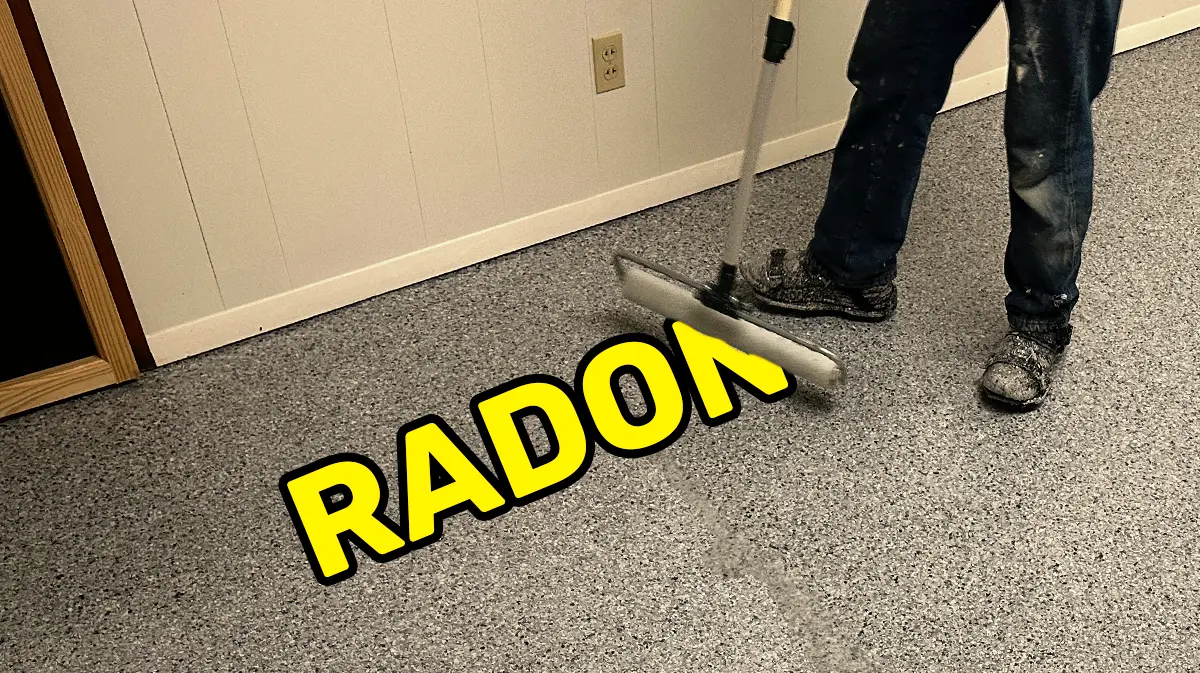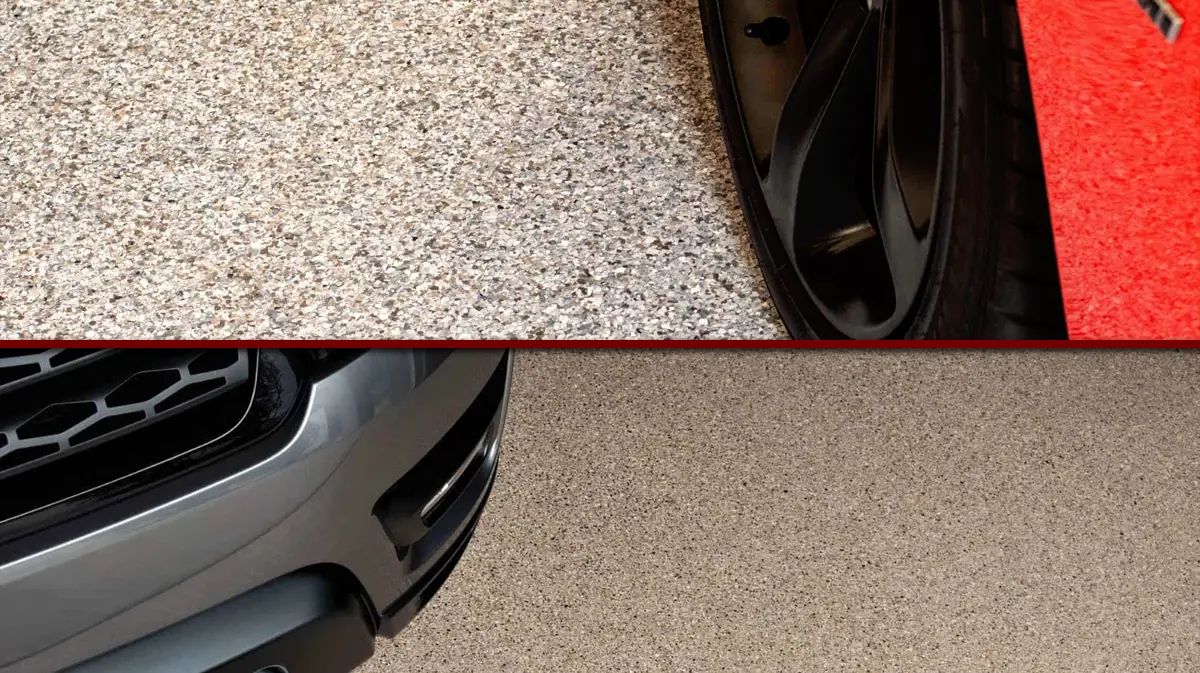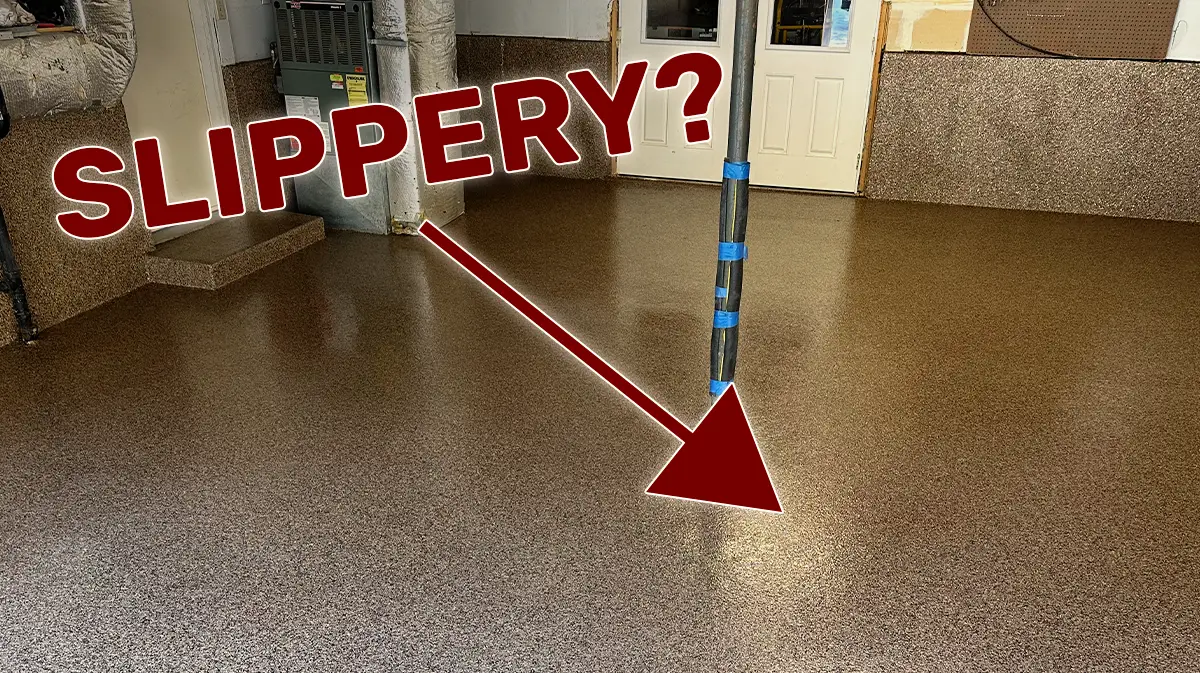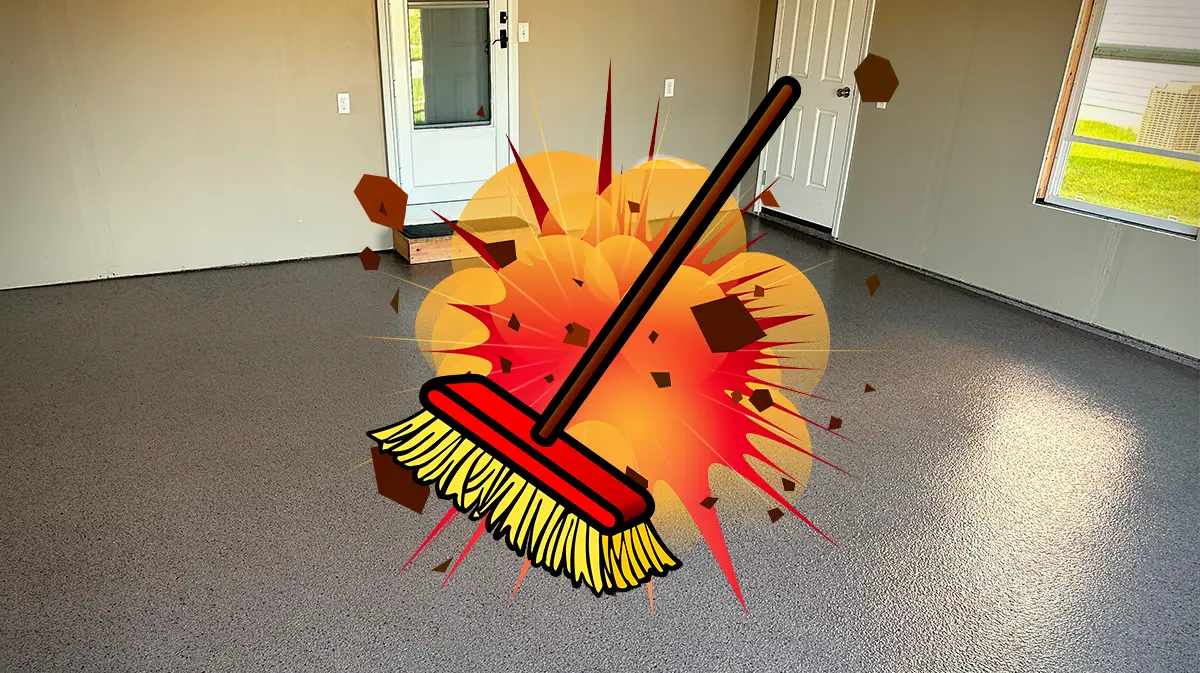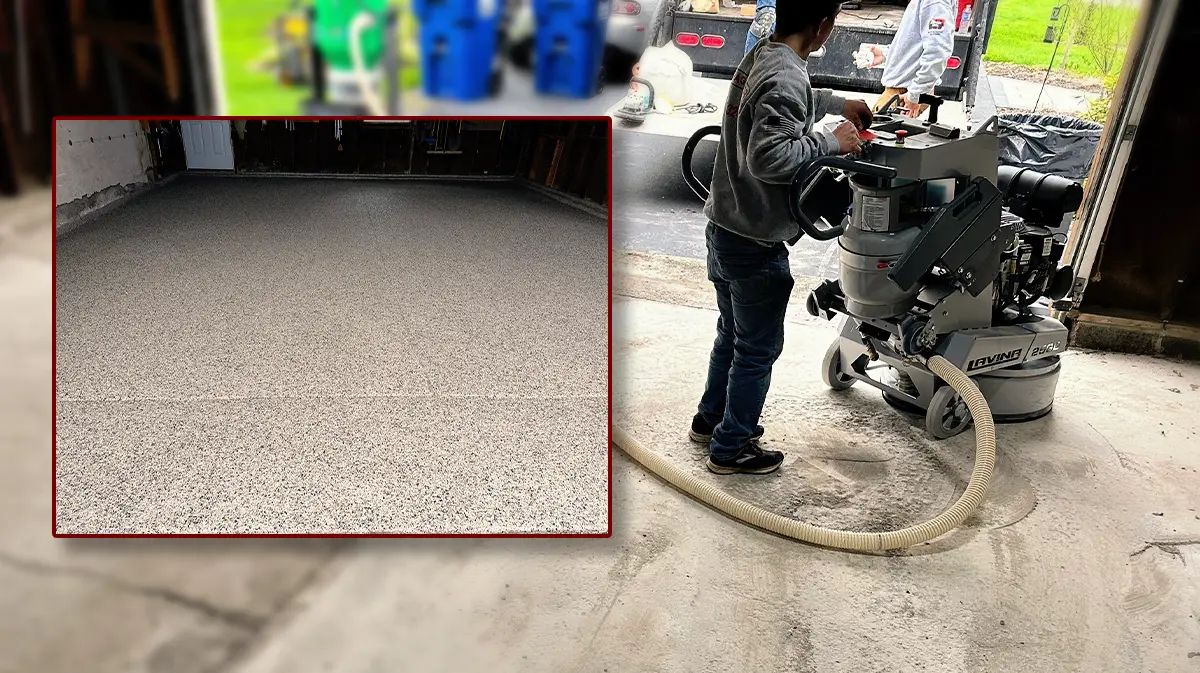Choosing the right floor coating for your New York home or business requires an understanding of the industry terms and how these coatings perform. Below, we’ve provided some epoxy flooring terminology (and definitions) to help guide you through the world of epoxy and polyaspartic flooring. Q: Epoxy Flooring Terminology: Why should I choose an epoxy coating for my New York ... Read More
A Garage Floor That Lasts: The Case for 2-Day Installations
Garage floor coatings have exploded in popularity across New York. If you’ve been shopping around, you’ve likely seen two options: the 1-day polyurea-polyaspartic system and the more comprehensive 2-day installations that use both epoxy and polyaspartic coatings. So, which one is right for your garage in the Horseheads area? Let’s dig into it. Breaking Down the Two Systems 1-Day Coating: ... Read More
The Best Epoxy Blending Technique in New York State
Epoxy coatings: tough, long-lasting, and ready to stand up to whatever New York throws at it. But let’s be clear—getting that flawless epoxy floor starts long before the installation. It all begins with the mix. Specifically, the epoxy blending technique. Epoxy Blending Technique: Why the Mix Matters Epoxy is more than just some floor coating—it’s the foundation of a durable, ... Read More
Garages in New York: Used More Often Than Your Front Door?
Garages in New York have taken on a new role: becoming the principal entryway into the home. While the harsh winters make the garage an obvious contender for the new “front door,” there are a variety of factors that have driven this shift. The Impact (or lack thereof, if you have a garage) of New York’s Weather Over the last ... Read More
How New Yorkers Are Combatting Radon and Musty Basement Dangers
Combatting Radon: Understanding Radon Risks in New York If you’ve been following local health advisories, you might already be aware that combatting radon is a serious concern in New York. This invisible, odorless gas is naturally found in the soil and can seep into homes through cracks in the foundation. Once inside, radon can accumulate to levels that pose significant ... Read More
Mica Blends: The Latest and Greatest Way to Elevate Your Floor Game
Whether you're upgrading a farmhouse near Horseheads or a commercial space in Ithaca, our Bagari SE and Vintage Mica blends add a touch of luxury and durability to any space. Designed with the unique New York architectural styles in mind, these blends seamlessly fit into both rustic and contemporary settings. Ask about our unique flake blends and elevate your floor ... Read More
Ways to Keep From Slipping on Your Garage Floor
Epoxy coatings are a popular choice for garage floors throughout New York. It’s hard to beat their resistance to chemicals and moisture, durability, and easy maintenance. However, the state's varied climate — the humid summers and especially the snowy, frozen winters — can make these surfaces dangerously slippery when wet. This is particularly concerning in areas like garages, basements, and ... Read More
Epoxy and Polyaspartic Coating Upkeep: Easy Tips for Homeowners
New York has hot summers, icy winters, and it rains a lot. Moisture is a pervasive issue that damages garage floors all across the state. Cleaning your entire garage can be tough, but you need to keep the floor maintained if you want to give it the best shot against everything New York is going to throw at it. On ... Read More
Concrete Prep: The First Step to a Beautiful Garage Floor
In New York, where the climate ranges from hot, humid summers to icy winters, ensuring your garage floor is well-prepared is essential for durability and aesthetics. Imagine trying to build a sturdy house on an unstable foundation; without proper concrete preparation, your epoxy coating won't last. Properly prepping your concrete floor is crucial if you want a garage floor that’ll ... Read More
Does epoxy need to be sanded between coats?
Yes, sanding between coats of epoxy is necessary to ensure proper adhesion and a smooth finish. This crucial step helps to create a mechanical bond between layers, preventing issues like poor adhesion and uneven texture. By sanding each coat, you ensure that the subsequent layers of epoxy will adhere properly, resulting in a durable and professional-looking finish. Proper sanding also … Read More

